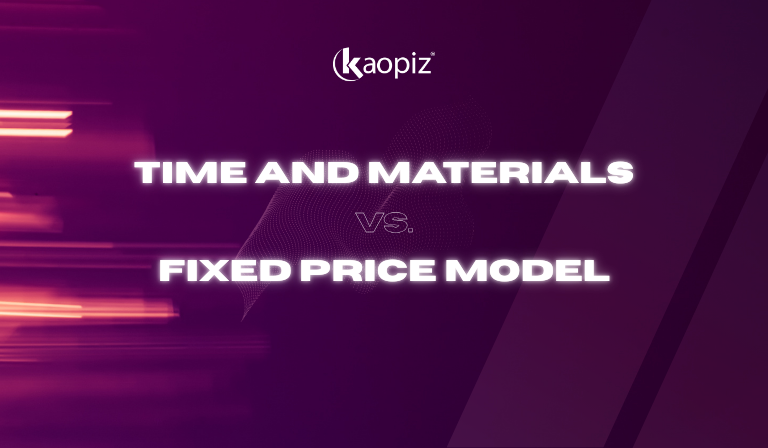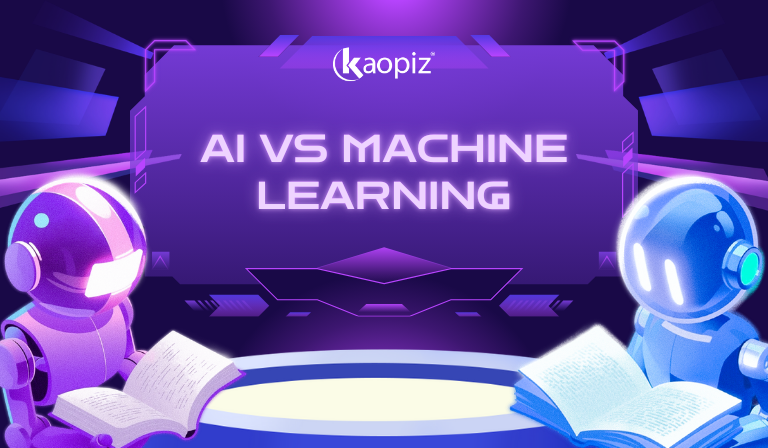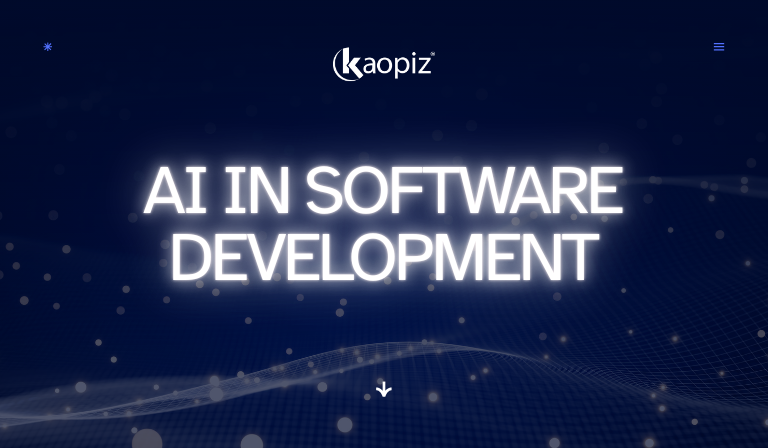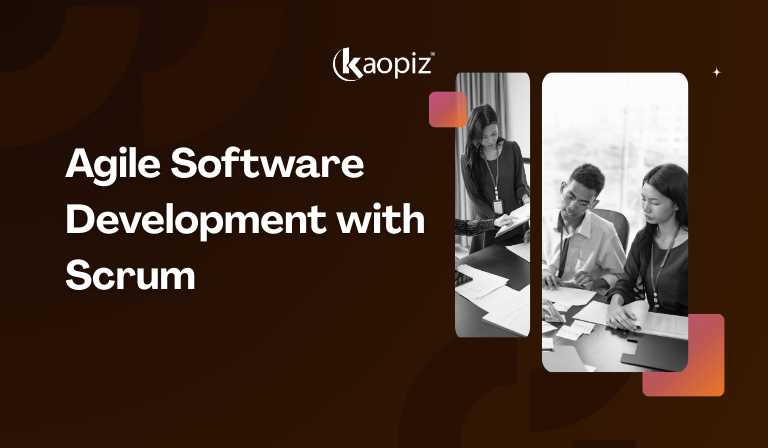From Concept to Launch: Planning Your LMS
The successful implementation of a Learning Management System (LMS) requires a thorough and strategic approach. From evaluating your current learning culture to selecting the right vendor, planning your LMS is a multi-phase process that demands careful attention to detail. This guide walks you through the essential steps of LMS planning, ensuring your organization is equipped with a platform that enhances learning experiences, boosts engagement, and delivers measurable outcomes. Kaopiz, a provider with qualified developers, offers expert assistance for organizations looking to implement a robust LMS.
Table of contents
Evaluate Your Current Learning Culture
Before embarking on LMS development, it’s essential to understand your organization’s existing learning culture and infrastructure. This evaluation helps in designing an LMS that aligns with your training needs and addresses current gaps.

a) Assess Training Programs and Gaps
- Conduct a comprehensive review of your current training programs and delivery methods. This could include face-to-face training, online modules, and other tools. Identify areas where your existing systems fall short in engagement, retention, or content delivery.
- Survey employees and trainers to gather feedback on the effectiveness of current learning solutions. Understand what they find helpful, and where they experience challenges.
b) Analyze Learning Objectives and Outcomes
- Look at the learning objectives of your existing programs and measure their effectiveness in terms of knowledge retention and skill development. According to the U.S. Department of Education, ongoing evaluation of educational programs ensures that training initiatives are not only comprehensive but also aligned with organizational goals.
Define Objectives
Setting clear objectives is a crucial step in LMS planning. Your goals will determine the type of system you need and guide every phase of development and deployment.
a) Identify Specific Learning Goals
- Define what you want to achieve with your LMS. Are you looking to streamline onboarding, enhance professional development, or ensure compliance training? Align these goals with your company’s broader objectives to create a focused and purpose-driven LMS.
b) Establish Key Performance Indicators (KPIs)
- Determine metrics for success, such as completion rates, learner satisfaction, engagement levels, and knowledge retention. KPIs will guide you in measuring the impact of your LMS once it’s launched.
c) Consider Scalability and Future Growth
- Ensure that your LMS is scalable and adaptable to accommodate future organizational growth. Planning for expansion will save time and resources in the long run and allow for seamless integration as your company evolves.

Researching LMS Requirements and Features
Understanding the requirements and features necessary for your LMS is vital for its success. This phase involves deciding what functionalities are essential and how they fit with your objectives.
a) Essential Features for Your LMS
- Identify must-have features such as course management, content delivery, assessments, reporting, mobile compatibility, and integration with existing systems like HR and CRM tools. According to the International Society for Technology in Education (ISTE), a well-designed LMS should enhance both instructor and learner experiences through user-friendly interfaces and data-driven insights.
b) Custom vs. Off-the-Shelf LMS Solutions
- Evaluate whether a custom-built solution or an off-the-shelf product best fits your organization. A custom solution offers flexibility and can be tailored to your specific needs, but it may come with higher costs and longer development times. Off-the-shelf solutions provide quick deployment and a broad range of features but may not align perfectly with your requirements.
c) Integration Capabilities
- An effective LMS integrates with other software solutions like HRMS, CRM, or analytics platforms. This integration ensures a seamless flow of data and improves the efficiency of your training programs.
Budgeting and Timeline Planning
A well-structured budget and timeline are critical to the success of your LMS development project. This phase involves planning resources, setting timelines, and estimating costs.
a) Budget Considerations
- Establish a realistic budget that covers all aspects of LMS development, including software licensing, customization, content development, and ongoing maintenance. Ensure that your budget also accounts for potential future expansions and upgrades.
b) Project Timeline
- Develop a detailed timeline for each phase of the project, from initial planning and research to development, testing, and launch. Setting milestones for each phase helps track progress and ensures that the project remains on schedule.
c) Resource Allocation
- Identify the internal team and external partners needed for successful LMS implementation. Consider whether you will need instructional designers, IT support, content developers, or external consultants. Planning resources in advance helps to avoid delays and ensures that all required skills are available when needed.

Choosing the Right LMS Vendor or Development Partner
Selecting the right partner for your LMS development is crucial to the project’s success. Whether you opt for a vendor offering an out-of-the-box solution or a custom development partner, thorough vetting is essential.
a) Evaluating Vendor Experience
- Look for vendors with a proven track record in LMS development. Evaluate their portfolio and expertise, ensuring they have experience working with businesses similar to yours in terms of size and industry.
b) Requesting Demonstrations and Trials
- Before committing to a vendor, request a demo or trial of their platform. This hands-on experience will give you a better sense of the system’s usability, features, and overall functionality. The Ministry of Education, Singapore suggests that piloting new systems helps identify potential issues before full deployment.
c) Support and Maintenance Options
- Review the vendor’s support options and maintenance plans. It is crucial to ensure that your vendor offers adequate support, including software updates, troubleshooting, and help desk services, to minimize disruptions post-launch.
Why Kaopiz? Your Qualified Development Partner
Kaopiz stands out as a trusted and experienced provider for LMS development. With a team of highly qualified developers, Kaopiz offers tailored solutions that meet the specific needs of organizations, ensuring your LMS is not only functional but also scalable and innovative.
- Expertise in LMS Development: Kaopiz has a proven track record of developing LMS platforms for various industries, ensuring a high level of customization and integration to suit specific requirements.
- Comprehensive Support: From initial concept planning to post-launch maintenance, Kaopiz provides end-to-end services to make your LMS implementation smooth and effective.
Conclusion
From concept to launch, planning your LMS requires a strategic and structured approach. By evaluating your existing learning culture, defining clear objectives, and conducting thorough research, you set the foundation for a successful LMS implementation. Budgeting and choosing the right development partner further ensure that your LMS meets your business needs while remaining scalable and adaptable for future growth.
With a robust plan in place, your organization can leverage the full potential of an LMS to enhance learning experiences, increase engagement, and achieve measurable results. For expert assistance in developing and launching your LMS, consider partnering with Kaopiz, a trusted provider with qualified developers to ensure your LMS is both innovative and effective.
Trending Post





















No Comments yet!